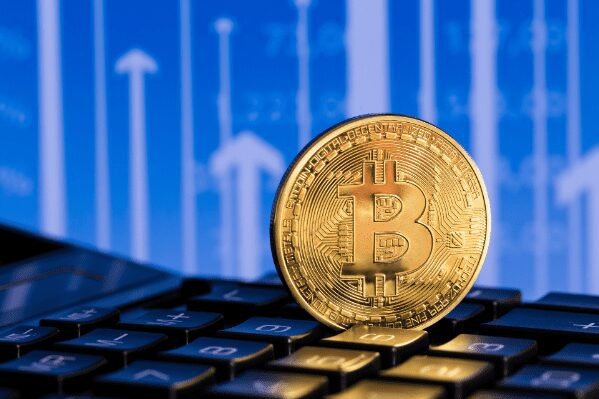a year ago
What is Bitcoin and How Does it Work: the Digital Gold Cryptocurrency

In today's digitized world we are trying to understand what Bitcoin currency stands as the pioneering revolutionizer of finance in modern society. But, what is this one? In the intricate weave of the digital currency world, understanding the fundamentals of BTC is critical, and this guide offers a comprehensive look at this digital gold, exploring its working models, its usage, and its perspectives as an innovative avant-garde in the old-school world of financials.
Principles of Bitcoin
Bitcoin, known as BTC, stands at the forefront of a groundbreaking digital currency revolution, operating beyond the influence of central banks.The transparent recording of these transactions takes place on a publicly accessible ledger, the blockchain, which not only enhances lucidity but also reinforces the integrity and resilience of the system. Bitcoin's decentralized structure empowers users, granting them unequaled control over their financials while putting an end to the need for mediators and fostering direct peer-to-peer interactions. This paradigm shift takes exception to the traditional banking paradigm, heralding an era characterized by decentralized governance and the emergence of self-regulated digital currencies.
Let's understand what is Bitcoin BTC and how to use it correctly:
-
Decentralization: At its core, what is Bitcoin based on is like a decentralized network, meaning no single entity has control over it. Instead, it relies on a network of nodes (computers) administered at different points on planet Earth to check transactions and support the rectitude of the systems. This deconcentration makes sense with it a level of transparency and safety that's not present in traditional financial systems.
-
Digital Gold: Bitcoin is often referred to as digital gold due to its finite supply (limited to 21 million BTCs) and its potential as a store of value. Similar to gold, digital currency can serve as a hedge against inflation and fiat currency devaluation.
-
Financial Inclusion: other cryptocurrencies can provide financial services to people who are or are underbanked and there is what is Bitcoin doing - anonymity access in the online transactions world. By bypassing traditional banking systems, digital money enables transactions anywhere as long as one has access to the internet.
-
Programmable Money: BTC can be programmed to automate certain functions. For example, it can be used to create smart contracts - self-executing contracts with the terms of the agreement directly written into code.
-
Privacy/Security: Bitcoin provides a degree of privacy as affairs do not contain personally identifying information. However, all transactions are recorded on the public ledger (blockchain), providing transparency. Its cryptographic foundation also provides robust security measures.
Bitcoin's Enigmatic Creator
An individual or group of strangers operating under the pseudonym Satoshi Nakamoto introduced BTC. However, the exact identity remains a mystery, but the main question is what is Bitcoin in simple terms, that is the point of our article. The driving force behind digital currency's creation was to develop a currency impervious to governmental interference, fully decentralized, facilitating direct transactions between users.
The Blockchain: Bitcoin's Systems Heartbeat
Mining there is the process of adding bargains to the blockchain. Miners are persons in the network who use power on their system blocks or different computers to solve complex mathematical problems in pursuit of digital gold. If one of them decodes these math codes, they add a new node of transactions to the public transaction ledger and are remastered with newly obtained Bitcoin.
Blockchain is the main block underlying any cryptocurrency, including what is Bitcoin and how it works, and how it is used as the first virtual currency and the most used one in the markets. This revolutionary technology allows this coin to function in a decentralized manner, and that means there's no governing body to control its interaction.
Let's briefly regarding the primary topics:
-
Digital money revolutionizes financial systems by enabling direct peer-to-peer transactions without intermediaries such as banks or governments, leveraging decentralized networks and cryptographic protocols.
-
The process of mining, executed by network participants known as miners, involves utilizing computational power to solve complex mathematical puzzles, validating transactions, and adding new blocks to the blockchain. Successful miners are rewarded with newly minted digital currency.
-
Digital wallets, available in online or offline forms, provide users with secure storage for their digital assets, incorporating advanced cryptographic techniques to protect against unauthorized access and ensuring the privacy of transactions.
-
Anonymity is a notable feature of digital currencies, where the real-world identities of transaction participants remain hidden while maintaining transparency through the traceability of transactions on the blockchain, providing users with a level of privacy and confidentiality.
-
The inherent volatility of digital currencies, exemplified by Bitcoin, leads to significant price fluctuations over short periods. While this volatility can offer lucrative investment opportunities, it also carries substantial risks that investors should consider and manage.
-
The decentralized and anonymous nature of digital currency has raised concerns regarding illicit activities. Regulatory authorities are tasked with implementing measures to combat misuse while preserving the core advantages of decentralization and financial innovation.
-
Digital currencies empower financial inclusivity by providing access to financial services for unbanked populations worldwide, bypassing traditional banking infrastructure limitations and offering new opportunities for economic participation and growth.
-
The emergence of decentralized finance (DeFi) leverages digital currencies to create open and permissionless financial ecosystems, enabling innovative services like decentralized lending, automated market-making, and yield farming, challenging traditional financial intermediaries.
Despite its volatility, digital money has become a popular investment. Some investors view it as "digital gold" and a hedge against inflation. But BTC is not just an investment, it's also a payment system. More and more businesses, large and small, are beginning to accept virtual money as a form of settlement further enhancing its utility and acceptance.
Buying and Using: A Dual-Purpose Digital Asset
Cryptocurrency payment is versatile; it can be an alternative investment and a means of what is bitcoin explained in a digital assets world. Yet, it is subject to market volatility. Many vendors and companies accept this coin, including food services, travel agencies, and even some tech giants.
You can buy BTC on every cryptocurrency exchange and store it in a digital 'wallet.' It can also be invested in through Bitcoin Individual Retirement Accounts (IRAs) and mutual funds. But like any investment, risks abound.
Frequently Asked Questions: Bitcoin Simplified
How does Bitcoin make you money?
You can earn money in a few ways using Bitcoin, one of the simplest ways is spot trading, buying, and selling it in the cryptocurrency exchange. If you buy Bitcoin peer-to-peer when the price is low and sell when the price is high, you could make a profit, even without the broker's leverage. It's worth noting that the price of digital money can be highly volatile and investing there carries risks but none of the market participants is immune from such losses. Another way is through Bitcoin mining (but it's not for everyone), which involves using powerful computers to solve complex mathematical problems and being rewarded in digital currency. However, the costs and technical skills and opportunities required for mining are expensive and they are very hard to get.
Can you turn Bitcoin into cash?
Indeed, while virtual currency like Bitcoin has gained traction as a medium of exchange, its acceptance for purchases relies on the willingness of businesses or service providers to embrace it. The adoption of Bitcoin as a payment method varies across different sectors and regions. While an increasing number of online merchants and physical stores now accept BTC, there is still a journey towards universal acceptance. To facilitate the identification of Bitcoin-friendly establishments, specific websites and services have emerged, offering directories or maps that highlight local businesses embracing digital currencies. These resources aid users in locating and supporting businesses that are receptive to the use of virtual currency for transactions, fostering a growing ecosystem for Bitcoin adoption in everyday commerce.
Is Bitcoin a Good Investment?
Whether digital money is a good investment depends on individual investment goals, risk tolerance, and market knowledge. BTC has proven to be a high-reward, but equally high-risk investment. It has experienced significant price volatility, meaning the value can fluctuate wildly in a short time. Before investing, it's essential to do thorough research, consider your financial situation, and possibly consult with a financial advisor.
How much is $1 Bitcoin in US dollars?
The price of Bitcoin in USD fluctuates constantly due to market forces. As of my knowledge cut-off in September 2021, I cannot provide real-time data. Please check a reliable financial news source or an exchange like Wiex.io for the most current exchange rate.
Can I use Bitcoin as a currency to make purchases and where is it accepted?
Yes, virtual currency can be used to make purchases, but it is dependent on whether the business or service you're using accepts Bitcoin as payment. Many online and brick-and-mortar businesses accept BTC, including some major retailers. However, its acceptance as a form of payment is not yet universal. Some websites and services can tell you which local businesses accept digital money.
What are the tax implications of using Bitcoin in the U.S.?
The Internal Revenue Service (IRS) treats other cryptocurrencies as property for tax purposes. This means that selling digital coins, using them to purchase goods or services, or obtaining them through mining can be considered a taxable event. If you hold BTC as an investment and sell it at a profit, you'll have to pay capital gains tax on your earnings. It's recommended to keep records of your transactions and consult with a tax professional to understand your obligations.
Concluding Thoughts: Navigating the Bitcoin Universe
Bitcoin is as complex as it is intriguing. It is a fascinating terrain that demands understanding its principles to navigate successfully. As more businesses accept digital money and the technology behind it evolves, the potential for Bitcoin to be a standard payment method is on the horizon. Whether you consider it as a part of your investment portfolio or a revolutionary payment system, the trajectory is something to watch. Stay informed, stay prepared. Welcome to the Bitcoin era!
Industry analysis
How are Cryptocurrency Hot Wallets Different from Cold Wallets
What is USDT — Tether coin meaning in cryptocurrency
How to Buy and Invest in Bitcoin
Cryptocurrency Security in 2024
Difference Between CEX and DEX in Crypto
What Is a Crypto Exchange
The Biggest Crypto Scams of All Time
Difference Between a Crypto Exchange And Broker
Accounting for Cryptocurrencies
Types of Cryptocurrency Wallets
Stay informed about the latest news on crypto
Subscribe to our newsletter.








